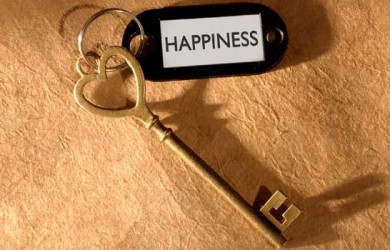Why Forgive Others For Inner Peace

Unlock Daily 30-Sec Tips for a Happier Relationship
👉 Subscribe FREEKey Takeaways
Marriage.com AI Quick Summary
Do you think of forgiveness and something inside you screams “no, they don’t deserve it”? Why forgive them?
Do you find yourself spending time visualizing an alternative scenario playing out in the past? Perhaps you picture similar unfortunate thing happening to that person as they did onto you? Do you ever think how much time and energy goes into those thoughts and/or actions?
You can select another way, not for the sake of the person that hurt you, but for your own.
Forgiveness is not something you undertake because of the other person, but because of yourself.
Forgiveness is a crucial part of bringing peace and harmony into your own life, this is why forgiveness is important.
What is and what is not forgiveness
It may sound easy to do, but in practice, we struggle to forgive. Perhaps to actually be able to forgive, we need to understand what forgiveness is and what it is not.
Most of us have misinterpretations of what forgiveness is which can lead to postponing it or being unable to forgive at all.
Therefore, it is worth investing time to think about why forgive and counter those mistaken beliefs about forgiveness and find your own version of it.
Forgiveness doesn’t mean you will cease to have feelings about the situation or that everything is fine or forgotten. Nonetheless, there could be things to work on to repair the relationship. Also, by forgiving you are not excusing the other’s behavior and sometimes you don’t even need to share your forgiveness with the person you are forgiving.
When you forgive someone it doesn’t mean you will preserve the relationship and the person in your life.
Forgiveness is something you do for you, not the other. Forgiving means accepting what happened and discovering a way to live and learn from it. Most often it will be a gradual process and most often it doesn’t even have to include communication to the other person.
In order to heal and move on you need to come to terms with what happened whether it is a cheating partner, a friend who betrayed you or a family member that wasn’t there when you needed them.
By forgiving, you are able to move on and release judgment and need for retribution. All that energy and time you spend on grieving about that event you can redirect than into rebuilding your life.
You can either run from it or learn from it.
The choice is yours. Once you accept, grieve the situation and learn from it you will be able to forgive, heal and move on.
In the words of Bernard Meltzer: “When you forgive, you in no way change the past, but you sure do change the future.”
Fears and belief that keep us from forgiving
How come so many of us struggle to forgive if it sounds as straightforward as letting go of the resentment? Because an action never stands alone, it is interconnected with our beliefs and other behaviors that stem from that one action.
For example, a person might be incapable to forgive because that might mean they are allowing the other to walk over them.
However, forgiving does not mean remaining in a destructive relationship. Why forgive? So that we can move on from the experience with or without that person in our life.
Many tie forgiveness to acceptance. They might feel as though by forgiving they are condoning the behavior and the actions of that person.
However, forgiving is unnecessarily tied with condoning the behavior, remaining in or restoring the relationship.
Alternatively, forgiving is an act of choosing to deliberately eliminate resentment toward the other that was unfair to us.
One might fear forgiveness means losing something we find extremely valuable. For example, retribution and anger, we feel could provide a feeling our position is just one, while the other is wrong.
Being the one hurt and mistreated can provide a victim status that often means people will come to the rescue and provide support. Believing this is the best or only way to acquire support can prevent a person from forgiving.
Why forgive? Because this will allow healing from the painful experience and because support can be accomplished in any other way besides remaining a victim.
Moreover, to forgive you need to be motivated to do so. The will to forgive is the key to actually doing it. Every so often we won’t’ be ready to do it because the hurt was too great or the person didn’t express any regret for their actions.
Every so often you will need to provide a safe outlet for your anger and resentment first, to achieve the state of mind needed to forgive. Understanding why you can’t forgive is the first step towards forgiveness.
Dealing with what prevents you from forgiving first, can lead to the road of allowing the resentment to go.
Why forgive? For your own well being
Forgiveness is the best gift that you can offer yourself. Forgiveness will help you heal and find peace. Even though anger can give you the adrenaline and you might enjoy being the one in the just position, forgiveness will give you so much more.
You will be able to have a healthier emotional life and achieve harmony. The energy so far invested in resentment can now fuel your efforts in the building of better, happier relationships.
Going down the path of forgiveness sometimes will require to acknowledge there was your own contribution or that you actually gained something valuable from that experience. It is possible there was a significant lesson there, but in order to be able to accept and use it, you need to work through the pain, anger and find in your heart the desire to forgive.
When you are willing to do so remember that we are all flawed as humans as is the person that hurt us. The other person acted out of their beliefs and needs and in the process hurt you. Think about the other person as someone who made a mistake and if knew better would have probably done so.
Forgiveness will help you remember the situation without being enslaved by it.
Forgiving will aid you to accept the lesson offered to you through that experience and allow you to grow through what you went through.
Why forgive? Think of it as an act of self-love – by forgiving the other, you are giving yourself peace and harmony. When you forgive the other, you might be more likely to acquit yourself for actions you disliked or past behaviors that you are ashamed of.
Learning how to forgive others could lead to forgiving yourself too.
Additionally, you are setting an example for people around you and earning credit for when you need others to forgive you something. We are all humans and commit mistakes. The more you forgive the more forgiveness you earn.
 Tips
Tips
Write your tip or submit a video tip
All tips are reviewed before the publishing.
Share this article on
Want to have a happier, healthier marriage?
If you feel disconnected or frustrated about the state of your marriage but want to avoid separation and/or divorce, the marriage.com course meant for married couples is an excellent resource to help you overcome the most challenging aspects of being married.
Recent Articles
Related Quizzes
Unlock Daily 30-Sec Tips for a Happier, Healthier Relationship
👉 Subscribe FREE on YouTube We'd love your feedback!
We'd love your feedback!
 Expert Q&A
Expert Q&A
Ask your question related to this topic & get the support you deserve from experts.


















 Thanks for your feedback!
Thanks for your feedback!